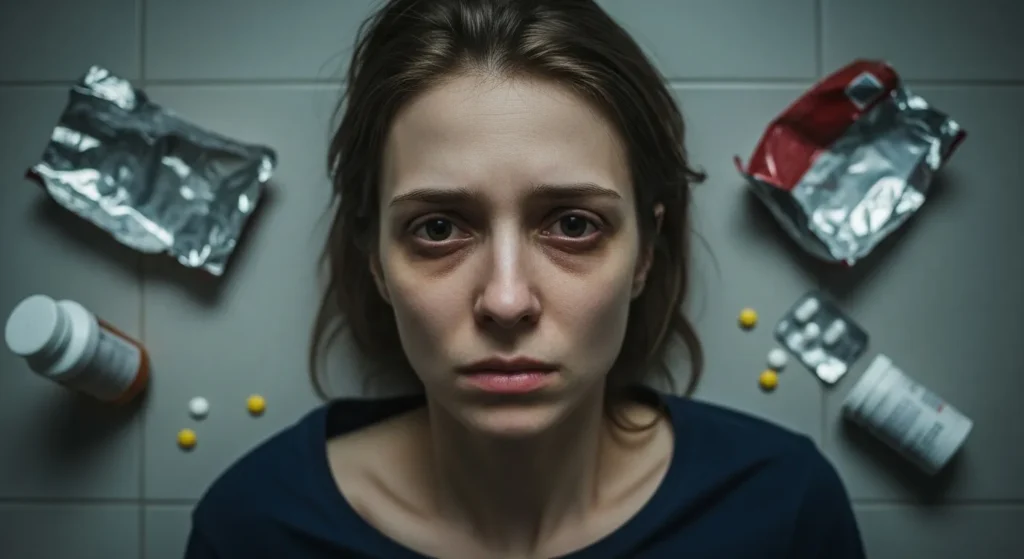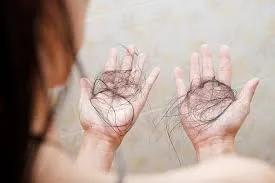Are you struggling with hair loss and wondering if your bulimia might be the cause? Does Bulimia Cause Hair Loss due to nutritional deficiencies, stress, and hormonal imbalances?
This article explains how bulimia affects your hair, what recovery looks like, and how to restore healthy hair growth. You’ll also discover expert advice and real recovery tips to support your healing journey, both physically and emotionally.
What Is Bulimia Nervosa?

A Brief Overview of the Disorder
Bulimia nervosa is an eating disorder characterized by cycles of binge eating followed by purging behaviors such as vomiting, excessive exercise, or laxative use. It’s often driven by a distorted body image and fear of weight gain.
Common Physical and Psychological Symptoms
- Repeated vomiting
- Dehydration
- Electrolyte imbalances
- Swollen salivary glands
- Fatigue and mood swings
- Irregular menstrual cycles
Nutritional Deficiencies Associated with Bulimia
Bulimia often leads to:
- Low protein intake
- Deficiency in iron, zinc, biotin, and B vitamins
- Chronic dehydration
These deficiencies significantly affect skin, nail, and hair health.
How Does Bulimia Cause Hair Loss?
Malnutrition and Vitamin Deficiencies
Hair follicles rely on steady nutrients to grow. Bulimia disrupts this by:
- Restricting intake of protein, the building block of hair.
- Causing iron and zinc deficiencies, which affect follicle function.
- Reducing vitamin B12 and biotin, essential for keratin production.
Caloric Restriction and Hair Growth Cycle Disruption
The body enters a conservation mode when calorie intake drops, prioritizing vital organs over hair growth. This leads to telogen effluvium—a condition where hair prematurely enters the shedding phase.
Hormonal Imbalances and Stress Factors
Bulimia raises cortisol levels (the stress hormone), which:
- Disrupts normal hormone balance
- Weakens hair follicles
- Increases shedding and breakage
Poor Protein Intake and Its Impact on Hair Structure
Without enough protein, hair becomes:
- Thin and brittle
- Lacks shine and strength
- Prone to breakage at the root
Bulimia?
Diffuse Thinning vs. Patchy Loss
- Bulimia-related hair loss usually presents as diffuse thinning across the scalp rather than bald spots.
- Hair may fall out in large clumps during brushing or showering.
Other Accompanying Hair Symptoms
- Brittle and dry strands
- Slower-than-usual regrowth
- Split ends and breakage
Scalp Health Changes Due to Malnutrition
- Dry, flaky scalp
- Itchiness or irritation
- In severe cases, follicle miniaturization may occur, leading to long-term hair loss.
Recovery: Can Hair Grow Back After Bulimia?
Hair Regrowth Timeline After Nutritional Rehabilitation
- 2–3 months: Initial shedding may stabilize.
- 4–6 months: New hair starts to regrow, though the texture may differ.
- 6–12 months: Full regrowth may occur depending on severity and treatment.
Factors That Influence Recovery
- Duration and severity of the eating disorder
- Age and genetics
- Treatment consistency
- Overall nutritional restoration
How to Prevent or Manage Hair Loss If You Have Bulimia
Nutritional Therapy and Diet Restoration
A diet rich in:
- Lean protein (eggs, poultry, legumes)
- Iron-rich foods (spinach, red meat)
- Zinc and B vitamins (nuts, seeds, whole grains)
Seeking Professional Eating Disorder Treatment
Recovery begins with mental and physical healing. This includes:
- Therapy (CBT or DBT)
- Nutritional counseling
- Support groups
Supplementation – With Medical Supervision
Important supplements:
- Biotin (supports keratin production)
- Zinc (cell regeneration)
- Iron (oxygen delivery to follicles)
- Vitamin D (anti-inflammatory effects)
Always consult your physician or registered dietitian before supplementing.
Importance of Mental Health Support
Hair regrowth won’t happen without addressing the underlying psychological triggers of bulimia. Emotional stability helps regulate stress hormones and restore physical balance.
When to See a Doctor or Trichologist
Red Flags That Hair Loss Is Severe
- Rapid, persistent hair shedding
- Bald patches or scalp visibility
- Hair falling out in handfuls
- Hair is not regrowing despite improved nutrition
Importance of Multidisciplinary Treatment
- A psychologist or psychiatrist for eating disorder management
- A dermatologist or trichologist for scalp and hair analysis
- Dietitian for personalized nutrition planning

FAQs About Bulimia and Hair Loss
Can bulimia cause permanent hair loss?
Not usually. Most hair loss is temporary and reversible with treatment. Prolonged malnutrition, however, can damage hair follicles over time.
Will my hair grow back after recovery from bulimia?
Yes—most patients see regrowth within 6 to 12 months of proper treatment and nutrition.
How long does it take for hair to grow back after treatment?
Initial regrowth may start within 3 months. Full recovery may take up to a year.
What are the best foods for hair regrowth during recovery?
Eggs and lean meats (protein)
Leafy greens (iron, folate)
Nuts and seeds (zinc, omega-3)
Whole grains (B vitamins)
Can I use hair treatments during bulimia recovery?
Mild, nourishing treatments are okay, but avoid harsh chemicals or heat styling while your hair is fragile.
Final Thoughts: Healing Your Body and Hair Together
Hair loss from bulimia is a real and distressing symptom, but it’s also a powerful signal your body needs help. With proper medical care, nutritional therapy, and emotional support, your hair can regrow—and so can your confidence.
Struggling with hair loss due to bulimia? You don’t have to go through it alone. Book a consultation with Dr. Rana Irfan in Islamabad today for a personalized plan to restore your hair and health.
